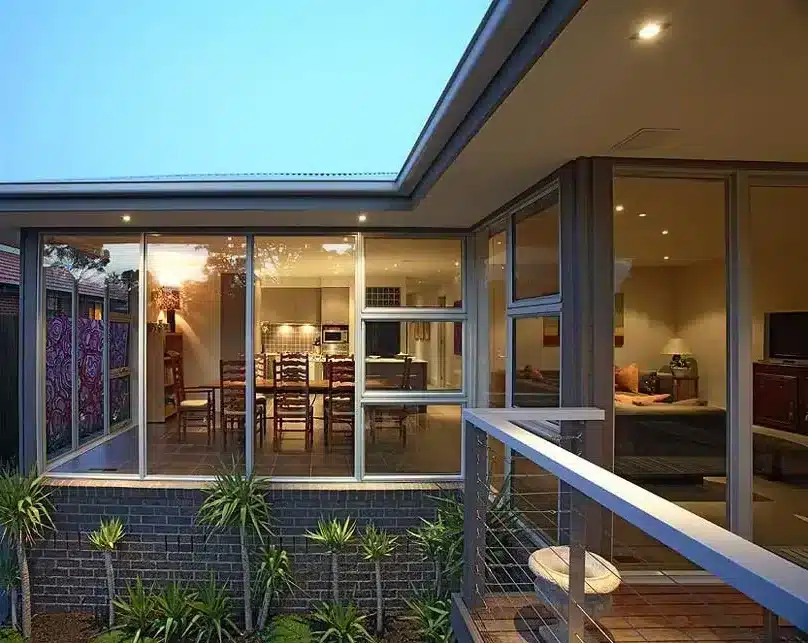Aluminium Windows
Aluminium windows are renowned for their durability, slim profiles, and modern appeal. They are highly resistant to corrosion and can withstand harsh weather conditions, making them ideal for both residential and commercial settings. The lightweight yet strong nature of aluminium allows for large glass panels, providing maximum natural light and unobstructed views.
Energy efficiency has traditionally been a concern with aluminium windows. However, advancements such as thermal breaks and double glazing have significantly improved their insulation properties. Aluminium is also a sustainable choice, being 100% recyclable and often made from recycled materials.
Customisation options abound with aluminium windows, from a wide range of colours and finishes to various designs such as sliding, casement, and bi-fold styles. While the initial cost may be higher than some alternatives, their long lifespan and low maintenance requirements make them a cost-effective investment.
Timber Windows
Timber windows are prized for their natural beauty and timeless appeal. They bring warmth and character to both traditional and contemporary homes. As a natural insulator, timber offers excellent thermal performance, helping to regulate indoor temperatures.
However, timber requires regular maintenance to protect against rot, warping, and insect damage. This includes painting or staining every few years, which can be time-consuming and costly. Despite these challenges, many homeowners are drawn to timber for its unique charm.
Sustainability is another advantage of timber windows, provided the wood is sourced from responsibly managed forests. Look for certifications such as FSC (Forest Stewardship Council) to ensure your timber windows are environmentally friendly.
uPVC Windows
uPVC (unplasticised polyvinyl chloride) windows are a popular choice for their affordability and low maintenance. They are resistant to rot, corrosion, and weathering, making them a practical option for a variety of environments. uPVC windows also offer good thermal efficiency, helping to reduce energy costs.
While uPVC is durable, it is not as strong as aluminium and may not be suitable for large window frames or heavy glass panels. Additionally, the appearance of uPVC can be less appealing compared to the sleek look of aluminium or the natural beauty of timber. Over time, white uPVC frames may discolour, especially in areas with intense sunlight.
Key Considerations
When choosing between aluminium, timber, and uPVC windows, consider the following factors:
- Budget: uPVC is the most cost-effective option, while aluminium and timber are generally more expensive.
- Maintenance: Aluminium requires minimal maintenance, uPVC is virtually maintenance-free, and timber demands regular upkeep.
- Durability: Aluminium is the most durable, followed by uPVC. Timber is the least durable without proper care.
- Aesthetic Appeal: Timber offers a classic, natural look, while aluminium provides a sleek, modern appearance. uPVC is more limited in design options.
- Energy Efficiency: Timber and modern aluminium windows with thermal breaks excel in insulation, whereas uPVC also performs well in this regard.
- Environmental Impact: Aluminium and timber are eco-friendly when sourced responsibly, while uPVC is less sustainable due to its plastic composition.
Final Verdict
The right choice of window material ultimately depends on your priorities. If you value durability, low maintenance, and a modern aesthetic, aluminium windows are an excellent choice. For those seeking a natural, timeless look and are willing to invest in maintenance, timber windows are a compelling option. If affordability and practicality are your main concerns, uPVC windows may be the way to go.
By weighing the pros and cons of each material, you can make an informed decision that enhances the comfort, efficiency, and style of your home.
